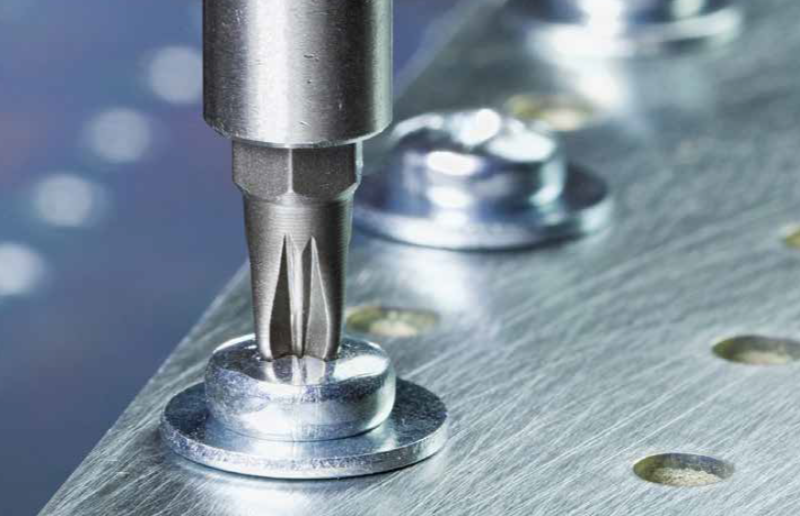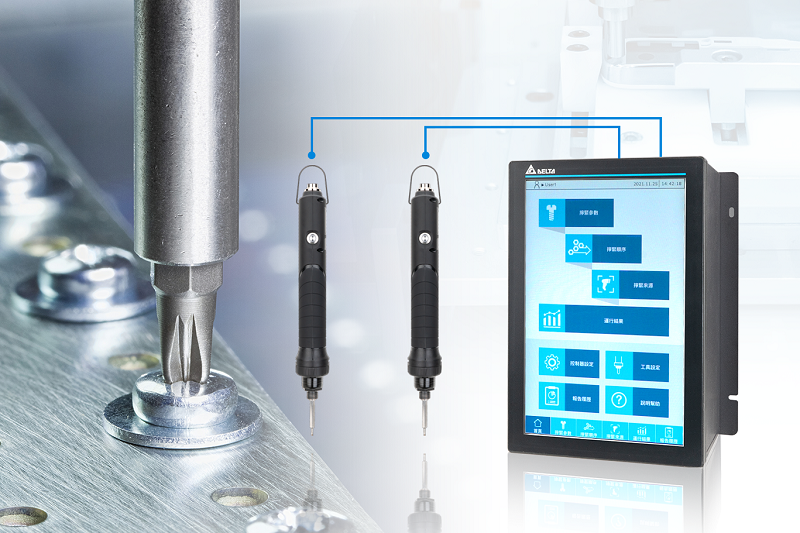ASIA ELECTRONICS INDUSTRYYOUR WINDOW TO SMART MANUFACTURING
New Smart Screwdriving System Advances Automation
Screw tightening is a common procedure that we are all familiar with. For manufacturing and assembly industries, it is an important process that closely relates to product quality, productivity, and yield rate. If screwdriving torque, angle, number of turns, and rotation speed are inconsistent throughout processing, it may cause screw damage, unnecessary reworking, and low efficiency. Particularly, these issues will have negative impacts on small-volume large-variety or high value-added production. What’s worse, traditional screwdriving relies heavily on manual processing. Particularly, this often results in missing, underdriven, stripped screws, or even cracks on the product surface.
In a nutshell, manual operation affects product quality and utilization rate. Moreover, manual operation also fails to comprehensively record screwdriving data, leading to poor quality control.

To deal with manual processing, manufacturers usually employ manual inspection at the end of the process. Consequently, it filters defective products and monitors product quality. However, technicians are still required to record data, which is time-consuming and labor-intensive. To address the above issues, Delta introduced its brand new Smart Screwdriving System with three key features to help fix customers’ pain points and enhance product quality in electronics and electric vehicle manufacturing.
The first feature is process planning. By setting screwdriving parameters through its user-friendly controller interface, the system helps achieve precise control of tightening torque, angle, and rotation speed. In both the front and end screwdriving stages, the system decelerates the rotation speed and monitors the torque to eliminate problems such as tilted or over-torque screws. As for the middle stage, the system accelerates the speed to shorten the overall screwdriving time. The Smart Screwdriving System helps control production speed and quality. Additionally, it also ensures accurate screw tightening processes for optimal screwdriving quality.

The second feature is data collection. Operators can download orders via a Manufacturing Execution System (MES) to the screwdriving system. The system then conducts screwdriving based on the preset parameters and further records processing data. Among them include time limit, quantity of screws, loosening count, and tightening sequences. These useful and complete key quality parameters assist operators in verifying screwdriving results, analyzing manufacturing quality, and tracing the production process.
Finally, flexible usability is the third highlight of the Smart Screwdriving System. One controller is capable of driving two screwdrivers for flexible production line implementation. Also, it can store up to 500 sets of parameters and tightening sequences as well as up to 200,000 report entries. Also, the Smart Screwdriving System can work with various industrial robots. With a dedicated flange module, the screwdriver is mounted onto the robot for more extensive automation.
In addition, Delta has developed a dedicated system architecture for the electronics and electric vehicle industries. With a simple adjustment, the Smart Screwdriving System can be integrated into the manufacturing process swiftly and seamlessly.

Delta has integrated its Smart Screwdriving System with hardware such as HMIs, drives, and sensors, as well as software such as the MES system and SCADA system. The screwdriving solution has been fully implemented in Delta’s manufacturing sites in Wujiang, China and Thailand, which exponentially enhances production efficiency and product quality. The former plant produces industrial automation devices and the latter manufactures electric vehicle components. By leveraging its advanced functions and successful applications, the Delta Smart Screwdriving System helps the assembly industry move further towards smart manufacturing.




